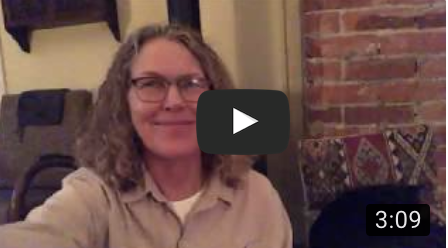This past Friday I attended an event at UBC called Women in Psychedelic Sciences. It was a fundraiser for MAPS, the Multidisciplinary Association for Psychedelic Studies, and four talented young women were on the panel. One of them referenced the work of Nadine Burke Harris, a pediatrician who has done extensive research into the area of our young developing brains. Her TED talk How Childhood Trauma Affects Health Across A Lifetime has been viewed over six million times since 2014 and is well worth the 15:45-minute watch.
Burke Harris references the Adverse Childhood Experiences Study (ACEs) conducted by the Centre for Disease Control and Prevention and Kaiser Permanente in the mid-nineties. The study asked 17,500 adults about their exposure to ACEs, defined in this pictograph from Harvard University as experiences that can include physical or emotional abuse, neglect, caregiver mental illness, and household violence. For every YES response, one point was added to their ACE score.
The results were significant. Firstly, they discovered that ACEs are very common. Sixty-seven percent of the population had at least one adverse childhood experience as defined above, and 12.6 percent (one in eight) had four or more. The second thing they discovered was the correlation between high ACE scores and poor health outcomes over time. This includes diseases like diabetes, cancer, heart disease, and many others. Poor health outcomes are the result of the brain and body’s stress response system, that, when repeatedly activated (e.g., the bear in the woods we are running from comes home day after day) affects not only our brain structure and function, but also our developing immune and hormonal systems. It is known as toxic stress.
This TED talk started connecting some dots for me. I just took the ACE quiz and scored 5, which puts me in the 12.6 percent. Dr. Robert Block, the former President of the American Academy of Pediatrics, is quoted by Burke Harris as saying: “Adverse childhood experiences are the single greatest unaddressed public health threat facing our nation today.” That is a staggering statement, but I trust what he’s saying is true.
My health has been an issue for decades, with injuries often becoming chronic. This makes logical sense if I think of my system as always in an accelerated ON position, with no opportunity to stand down and recuperate. But where I experience the effects of childhood trauma the most is in my tendency to dissociate under certain kinds of stress. Knowing there is an explanation for this reaction is deeply reassuring. It is not a ‘moral shortcoming’ but rather a physiological response, and with that there is hope.
This article entitled 4 Ways To Heal From Childhood Trauma suggests that methods such as neurofeedback, EMDR, psychedelic therapy and meditation are incredibly helpful, and that healing from our traumatic past can actually provide “the resilience of someone who overcomes, as well as optimism and mental freedom.”
There is no question that psychedelics have been invaluable to me, albeit challenging at times. They’ve expanded my worldview and provided me with a deeper understanding and a visceral felt-sense of what occurred in my early life. And although I’ve been meditating for many years, I recently started listening to the Waking Up Course by Sam Harris. It’s a beginner course and I’m really appreciating the patient step-by-step instruction. (It is free until the end of the year if you’re interested in trying it.)
I made just two notes to myself during the MAPS event last Friday. One was Nadine’s name, so I could watch her TED talk, and the second one was ‘we heal in connection.’
It all comes back to needing each other. The traumas so many of us experienced were largely due to lack of connection, and I believe it is through connection that we will heal them. Connection with ourselves, with our passions and creativity, with our souls and the Divine, and with our trusted others. If we can do our own healing and then hold the hands of our friends while they do theirs, then we can actually heal the world.
What have you found effective for healing trauma – childhood or otherwise? Let me know, I’d love to hear!


Sue Griggs, my aunt, passed this on to me. Thank you for sharing this, very informative, and pertinent to my life right now.
Dear Alison,
Thank you for your comments. I’m so glad to hear you found some info in the post helpful! And how wonderful that Sue passed it on. Thank you Sue!
Wishing you both all the best ❤️
Amy
Healing and deep fulfillment has occurred spontaneously when I have brought my attention to connect intimately.